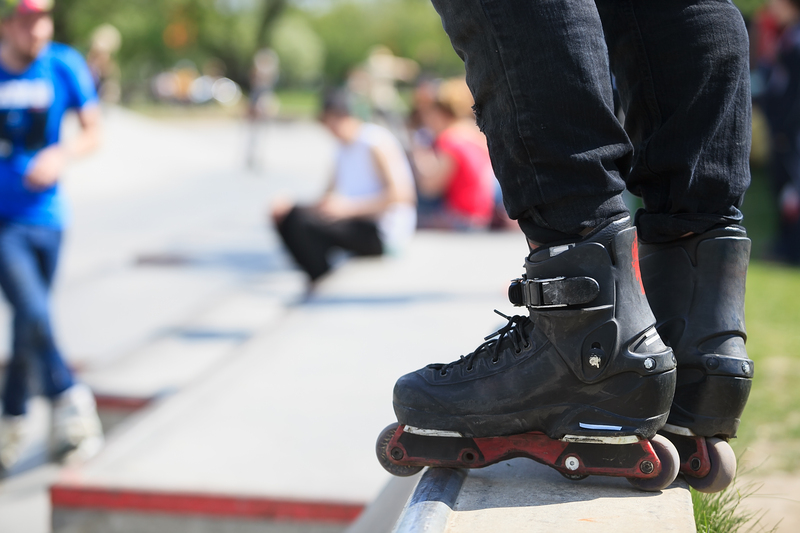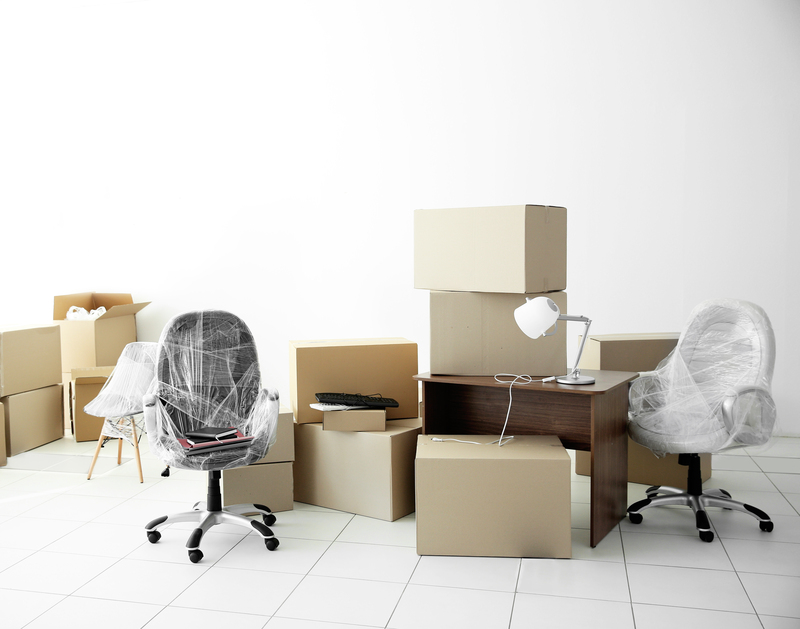The Smart Approach to Packing for Your House Move
Posted on 22/05/2025
The Smart Approach to Packing for Your House Move
Moving houses doesn't have to be chaotic or overwhelming. By adopting a smart and organized packing strategy, you can save time, minimize stress, and ensure that your belongings reach your new home safely and efficiently. In this comprehensive guide, we'll unravel the best techniques and proven tips for smart packing when relocating.
Why a Smart Packing Approach for Your House Move Is Essential
Every year, millions of individuals and families embark on the journey of moving homes. The process involves careful planning, efficient organization, and, most critically, smart packing techniques. A strategic approach to packing not only protects your valuable possessions but also streamlines the entire moving day experience. Instead of scrambling or facing the headache of lost or damaged items, you'll enjoy a seamless transition to your new place.
- Efficient packing cuts down moving time
- Reduces the potential for lost or broken items
- Minimizes physical and mental stress
- Makes unpacking at your new home a breeze
What Is Smart Packing?
Smart packing refers to a systematic and thoughtful method of preparing your belongings for a move. It emphasizes prioritization, decluttering, use of quality packing materials, labeling, and carefully organizing items to maximize space and safety. By adopting clever packing strategies, you'll save effort and enjoy peace of mind throughout your house move.

Step 1: Planning Your House Move Packing Process
Start Early: Give Yourself Enough Time
A well-planned move begins weeks in advance. Leaving things to the last minute is a surefire way to overlook essentials or rush the process, increasing the risk of breakage and stress. Aim to start packing non-essential items as soon as your move is confirmed.
Create a Packing Timeline
Break the packing process into manageable stages. Use a calendar or checklist to allocate days for each room or category of items. For instance:
- Four weeks out: Begin with items you rarely use, such as seasonal decorations and books.
- Two weeks out: Pack out-of-season clothes, spare linens, and guest-room supplies.
- One week out: Box up daily essentials and prepare the kitchenware.
Gather Quality Packing Supplies
For a smart packing method, always use sturdy, clean boxes and invest in good quality packing materials:
- Assorted cardboard boxes (small, medium, large)
- Packing tape and dispensers
- Bubble wrap and packing paper
- Permanent markers for labeling
- Plastic zip-top bags for small parts and hardware
- Furniture blankets and shrink wrap
Step 2: Decluttering--The Foundation of Smart Packing
Sort Before You Pack
Packing for your house move presents a perfect opportunity for decluttering. Every object you decide not to move means less to pack, transport, and ultimately unpack in your new space. Go through every room and categorize items into:
- Keep
- Donate
- Sell
- Recycle or Toss
Tip: Consider organizing a garage sale or using online marketplaces to sell usable items you no longer need. Not only does this lighten your load, but you can also make some extra cash in the process!
Step 3: Room-by-Room Smart Packing Guide
The Kitchen
The kitchen can be the most challenging room to pack due to its many fragile and oddly shaped items. Approach it with an organized packing plan:
- Wrap dishes and glassware individually in packing paper or bubble wrap.
- Use smaller boxes for heavier items.
- Disassemble small appliances if possible, and pack components in the same box.
- Seal open condiments or perishable foods in zip-top bags or discard.
The Bedroom
Clothing, bedding, and personal items are often straightforward but can take up space if not packed smartly.
- Leave everyday clothes in drawers and secure drawers with stretch wrap.
- Pack out-of-season clothes in vacuum-sealed bags to save space.
- Use wardrobe boxes for hanging garments to keep them wrinkle-free.
The Living Room
Electronics, decor, books, and furniture require careful packing:
- Use original boxes when possible for TVs and high-value electronics.
- Bundle cables and label them for quick reassembly.
- Arrange books horizontally in small boxes--don't overload.
- Protect artwork and mirrors with custom boxes or bubble wrap.
The Bathroom
Sort and dispose of expired medications and products. Use plastic bins to prevent leaks. Keep essentials (toothbrush, soap, towels) in a clear bag for the first night at your new home.
Step 4: Pro Packing Techniques for a House Move
Label Everything Clearly
Smart, organized packing includes meticulous labeling. Write the destination room and contents on each box's side and top. Use different color markers or labels for each room to help movers quickly deposit boxes in the right spaces.
Pack a First-Night Essentials Box
Your first night box should hold everything you'll need immediately after arriving--not after hours of searching through dozens of boxes:
- Bedding and pillows
- Basic toiletries and towels
- Medications
- Chargers and devices
- A change of clothes
- Important documents and valuables
- Snacks and water bottles
Use the Right Box for the Right Items
Never overpack boxes. Use small boxes for heavy items (books, dishes) and large boxes for lightweight belongings (linens, toys). This reduces the risk of boxes breaking or causing injury when lifted.
Protect Fragile and Valuable Items
Layer the bottom of boxes with newspaper or bubble wrap. Wrap each item individually and fill gaps with soft items or packing peanuts to prevent shifting. Clearly mark boxes containing fragile objects to alert movers--or yourself--to handle with care.
Disassemble Furniture and Keep Hardware Safe
Remove legs and other detachable parts from large furniture. Place bolts, screws, and small hardware in labeled zip-top bags and attach them securely to the furniture they belong to. This smart approach makes reassembly simple and prevents lost parts.
Step 5: Moving Day & Unpacking Like a Pro
Load Boxes Smartly
Heavier boxes should go on the bottom, lighter boxes up top. Keep essentials and fragile boxes easily accessible. If you're working with movers, provide clear instructions on specialty items or boxes labeled as "open first."
Conduct a Final Walkthrough
Check every room, closet, and cupboard to ensure nothing is left behind. Review your inventory list or packing checklist and confirm all high-value or essential items are accounted for.
Smart Unpacking Strategy
- Unpack the essentials box first
- Set up beds and bathrooms next for comfort
- Tackle one room at a time to avoid overwhelm
- Break down boxes and packing material for recycling as you unpack
Bonus Smart Packing Tips for Your House Move
- Photograph electronics before unplugging to easily reconnect cables in your new home.
- Reserve elevators or loading docks ahead of time in apartment buildings.
- Label boxes on multiple sides to make identification easy, even when stacked.
- Keep all important paperwork (move contract, lease, new address info) with you, not packed away.
Consider Professional Help
If time or physical limitations exist, invest in a full-service moving company. Many offer professional packing services and can help with bulky or delicate items, ensuring a smart, stress-free house move.

Frequently Asked Questions: The Smart Approach to Moving House
How Far in Advance Should I Start Packing for a Move?
Begin at least four to six weeks before your move. Early packing is key to stress-free relocation, providing time to tackle each space--one at a time--with consideration and care.
What Is the Fastest Way to Pack for a Move?
The fastest smart packing approach is to declutter before packing, use the right materials, and label meticulously. Enlist help from friends, family, or professionals to maintain momentum.
How Can I Make Unpacking Easier at My New Home?
- Label boxes by room and contents
- Pack a detailed essentials box for the first night
- Set up crucial areas (beds, bathrooms, kitchen) first
- Keep an inventory sheet handy
Conclusion: Mastering the Art of Smart Packing for Your Next Move
Smart packing for your house move isn't just about putting things in boxes; it's about being strategic, organized, and methodical every step of the way. Whether you're moving across town or across the country, implementing these tips and strategies will ensure a smoother, less stressful transition, allowing you to focus on the excitement of settling into your new home.
With careful planning, quality supplies, a thorough decluttering process, and the right packing techniques for your move, you can turn what is often a daunting task into an empowering, successful experience. Happy Moving!
Latest Posts
The art of efficient decluttering for a stress-free relocation
Revolutionize Your Move-Out Process with Effective Cleaning
Mastering the Art of Piano Moving: A Job for Specialists







